2022 Spring/Summer Newsletter
In this newsletter, we look back at the victory for police accountability, the twists and turns of the legislative session, our fight for unhoused Boulder residents, and the path toward justice. Hear from two East High School students on the future of reproductive freedom, reflections from our statewide listening tour, and a look ahead at our annual celebration honoring individuals and organizations who have made a profound and lasting impact in community.
The Path to Social Justice
In the 1980s, while leading the Phyllis Wheatley YWCA in Atlanta, I was asked to partner with a local church. The church hosted a nightly shelter for unhoused men; they wanted the YWCA to create a night shelter in our facility for the rising number of unhoused women with children seeking shelter. Like most other communities in the nation at that time, we were unprepared to address the unique needs of unhoused women and children. After a flurry of phone calls asking for commitments from faith and civic groups over the course of three days, the YWCA Women and Children’s Shelter opened. It would be open every night of the year.
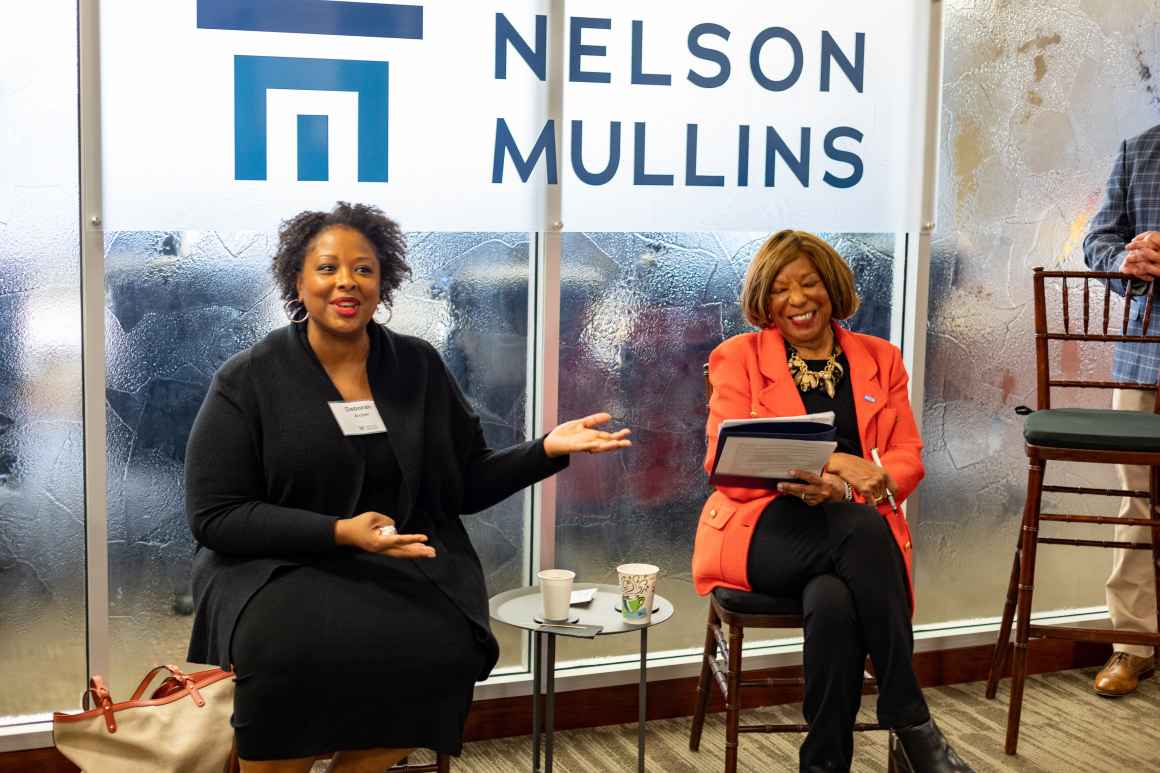
On a January evening when the temperature was below freezing, I received a call from a hospital emergency room asking if I would take in a mother and her two young children who were fleeing domestic violence. I knew this was a high-risk situation, but I couldn’t refuse them. The hospital gave the mother money for a taxi to our facility — she had fled her home with no money nor belongings. But she decided to walk nearly three miles to the YWCA with her children so that in the morning, she would have money to get through the next 24 hours. When I saw them come through our doors shivering, hungry, and afraid — it was my wake-up call. Providing night shelter was not a solution: it was a band-aid on an untenable situation.
Social services like the night shelter were not enough. Over the next three years, our private and public sector advocacy garnered enough awareness to be able to shift resources towards a housing-first model. This model provides immediate housing to stabilize families; the next step is to assess and address the underlying conditions that led them to housing insecurity. The transition from reactive social services towards more comprehensive, preventative measures was critical — but still, our work wasn't enough. To quote Rev. Dr. Martin Luther King, Jr., “Philanthropy is commendable, but it must not cause the philanthropist to overlook the circumstances of economic injustice which make philanthropy necessary.”
While organizing these housing-first programming through the YWCA, I learned that addressing the roots of social inequities can take decades-long perseverance. This is exactly the sort of work that we’re capable of accomplishing at the ACLU. The need for this work has never been larger: the fabric of our democracy is fraying, and our racial, social, economic, and educational disparities are stark.
For 70 years, the ACLU of Colorado has persistently worked to address systems of injustice through our work protecting civil liberties and civil rights for Coloradans. Through litigation, education, and advocacy, we have indeed moved the needle toward social justice. However, we are living through unprecedented times. At the ACLU of Colorado, we are uniquely positioned to take on the long-term efforts needed to meet our social justice goals, which cannot be achieved through a single lawsuit or in one legislative session. Systemic change requires sustained and coordinated multi-faceted strategies.
To position our work to create lasting change, we first needed to hear from those most impacted. In June 2021, we launched our Expanding the Table for Justice initiative, a statewide listening tour, to hear directly from Coloradans on how our social systems — education, law enforcement, employment, and housing — have failed them. We held 23 conversations with 332 attendees in Aurora, Colorado Springs, Denver, Durango, Fort Collins, and Pueblo. We are now compiling the data from these conversations and identifying themes. The final report we produce from these findings will be published this summer.
These conversations will guide our multi-year strategic plan, which becomes our roadmap toward advancing social justice. Internally, our new department, Advocacy and Strategic Alliances will guide our integrated advocacy approach, where litigation, advocacy, and education are strategies woven together to achieve identified outcomes.
To be clear, Expanding the Table for Justice is not a “one-off” event. It is the first iteration of a new way of operating at the ACLU of Colorado. This is our first step in building and sustaining community relationships to guide our efforts as we continue to work towards structural social change.
The ACLU of Colorado has a legacy of inspiring momentous, transformational justice in the communities it serves. Together, we are building a foundation to create a more perfect union. As ACLU’s National President, Deborah Archer, reminds us, “The work of the ACLU is about closing the gap between the America that was promised and the America that is."
Onward.
Victory: The Fight for Police Accountability
After a three-week trial in Denver in March, a federal jury awarded $14 million in damages to a dozen peaceful protesters it determined had their constitutional rights violated by Denver police. The 12 plaintiffs, seven of whom were represented by the ACLU of Colorado and the law firm Arnold & Porter, were targeted with projectile ammunition, pepper-sprayed, and tear-gassed while protesting George Floyd’s murder in the summer of 2020. At the conclusion of the trial on March 25, 2022, the federal jury found the City and County of Denver responsible for police officers’ use of excessive force and suppression of free speech.
“This verdict sends a powerful message to the police department, to the highest echelons of the police department, but also a message to police departments all over the country,” said Mark Silverstein, Legal Director of the ACLU of Colorado.
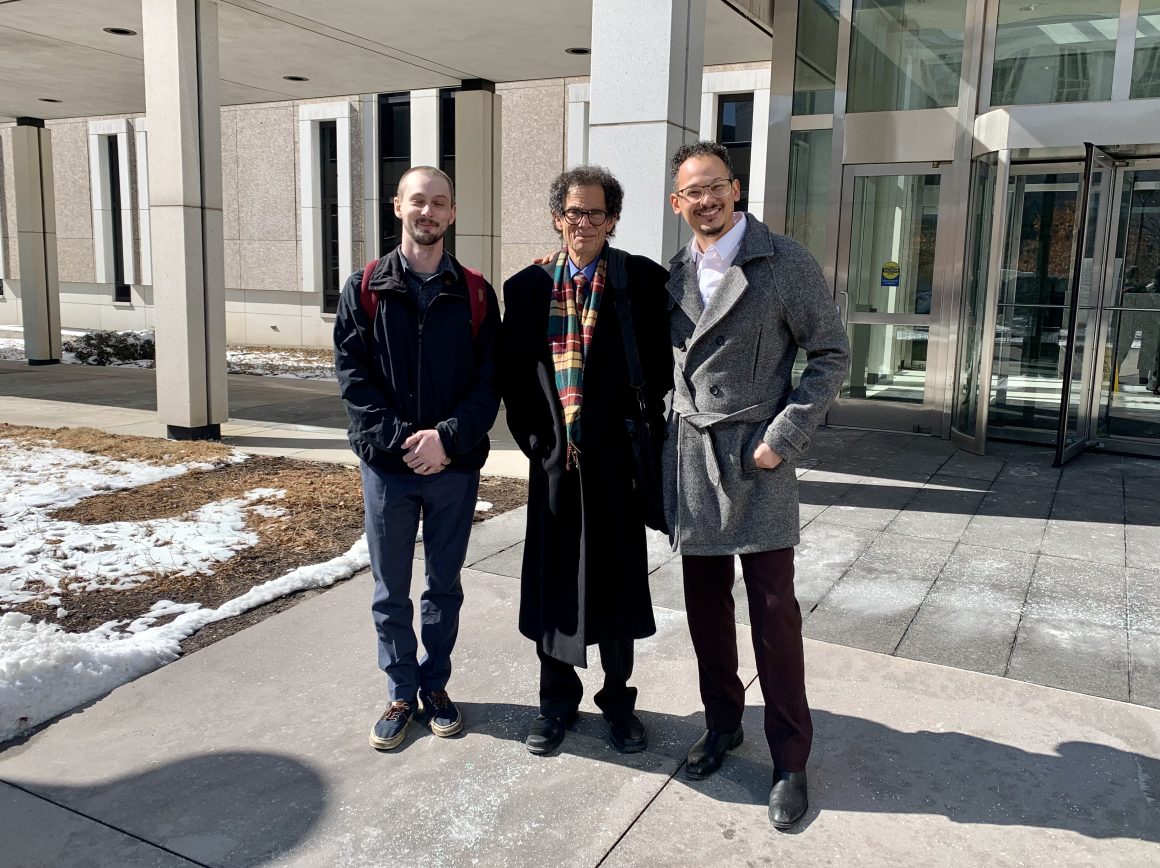
Similar lawsuits challenging the policing of the George Floyd protests are pending in cities across the country, but the ACLU of Colorado’s case, filed within weeks of the protests, was the first in the nation to go to trial. ACLU Cooperating Attorneys at Arnold & Porter led the trial team along with Elizabeth Wang and her colleagues from Loevy & Loevy, who represented five of the plaintiffs.
The lawsuit alleged that police shot rubber bullets, pepper bullets, tear gas, and flash-bang grenades at non-violent demonstrators protesting the murders of George Floyd and other Black men and women at the hands of law enforcement. The ACLU’s clients included:
- Elisabeth Epps, who was gassed and shot multiple times with projectiles, including one that hit her face, breaking the plastic medical-grade respirator mask she was wearing and wounding her face;
- Ashlee Wedgeworth, who was gassed, suffered pain and difficulty breathing, as well as burning in her eyes, nose, and face hours after being attacked. She remains fearful of being gassed or hit by projectiles if she exercises her right to protest in the future;
- Amanda Blasingame and Maya Rothlein, who were sitting on their front steps when officers began shooting pepper ball bullets. An officer then came up to Ms. Rothlein, staring directly at her, and threatened to pepper spray her. Ms. Rothlein, who is Black and transgender, felt targeted and has since become sensitive to loud noises and sirens;
- Zach Packard, who was hit in the head with a projectile and immediately knocked unconscious. Mr. Packard suffered a fractured skull and jaw, two fractured discs, and bleeding in his brain. He was hospitalized, prescribed anti-seizure medication, muscle relaxers, and oxycodone, and had to wear a neck brace for months after the protests;
- Hollis Lyman, who was gassed, shot by a pepper ball that bruised her arm, and suffered temporary hearing loss from grenades. Since her experiences protesting, Ms. Lyman has had difficulty sleeping and has suffered from anxiety.
- Stanford Smith, who encouraged other protesters to remain peaceful yet was pepper-sprayed directly in the face by an officer without warning. Mr. Smith feared for his life, could not see, and felt as though his face was on fire. His face remained red for several days and his skin eventually peeled off.
During the trial, the jury reviewed extensive video evidence and heard testimony from the plaintiffs and Nick Mitchell, the former Independent Monitor of the Denver Police Department.
The jury found that Denver’s policies and practices, failure to train, and ratification of officers’ actions led police to violate the plaintiffs’ constitutional rights. They also found that the city was responsible for the actions of additional law enforcement agencies that it called in for assistance. In describing what the verdict meant to her, plaintiff Elisabeth Epps remarked: “It feels like being seen.”
Rebuilding at the Capitol
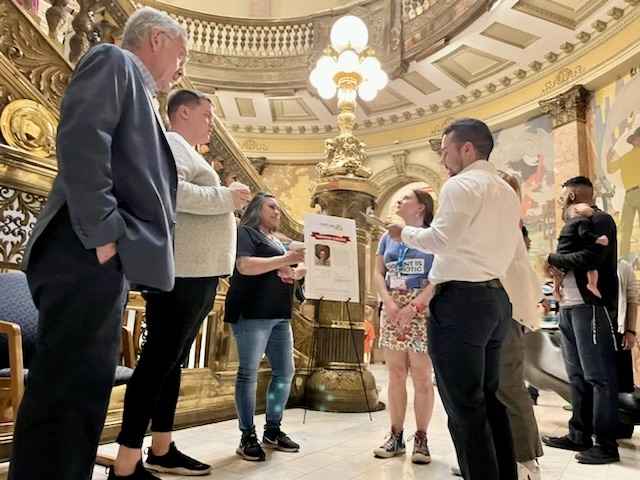
The ACLU of Colorado started the legislative session under my leadership as its new Director of Advocacy. The organization supported coalition partners on three priority bills: the Reproductive Health Equity Act (RHEA), which protects a person’s right to make reproductive health care decisions free from government interference; Clean Slate, which gives a fresh start to over a million people saddled with old criminal records that stand in the way of jobs, housing, and school; and Raise the Floor, which would protect children aged 10 to 12 by prioritizing community-based interventions rather than handcuffs and jail for kids.
The ACLU of Colorado helped support broad coalitions of allies and activists who achieved momentous victories in passing RHEA and Clean Slate, both of which protect and expand civil rights and liberties for millions of Coloradans. In what would become a theme of the legislative session, Raise the Floor’s common-sense policy ran into unexpected resistance from anti-reform forces. Our strong and disciplined coalition persevered and fought right up to the last days of the session to pass an amended bill that mandates a summer task force on this issue, laying the foundation for getting this critical bill across the finish line next year.
We also worked to support many partners from across the state to defend and expand hard-fought gains that Colorado has made in moving away from overly punitive, ineffective, and racially unjust criminal justice policy. In particular, the organization fought side-by-side with public health experts, directly impacted communities, and criminal justice reform advocates to reduce the harm caused by legislation that increased criminal penalties for people who use drugs containing fentanyl. It testified that this legislation was a major missed opportunity to prioritize public health solutions to the fentanyl crisis, and was a regrettable step backward toward failed and racist War on Drugs policies. While this legislation stands, for now, we were buoyed by the 310 ACLU of Colorado members and supporters who responded to our action alert, and we will continue to fight to reverse the negative part of this policy in the years to come.
Finally, the ACLU of Colorado launched a new legislative strategy this year by reimagining our traditional “Lobby Day.” Instead of hosting a single day for our members and supporters to show up and lobby on legislative priorities, we conducted a Week of Action, which included an entire curriculum aimed at creating the next generation of activist lobbyists by demystifying the legislative process, empowering young people, and teaching critical skills. Over 80 people attended from across the state, including supporters in Montrose, Palisade, Durango, and Alamosa, as well as the entire Front Range. The positive response from members and attendees was overwhelming. We are excited to grow and expand our Week of Action as the engine that will help power bold and innovative civil rights and civil liberties legislation in the legislative sessions to come.
Our Fight, Our Rights
Several years ago, ACLU of Colorado and its partners began planning for various scenarios in which Roe v. Wade could be undermined or overturned. The result of that planning was the Reproductive Health Equity Act (RHEA), a state law that guarantees the right to an abortion in Colorado, regardless of what happens to Roe at the federal level. Thanks to the work of countless advocates, RHEA became Colorado law in 2022. This law enshrines the right to choose, or refuse, contraception. Every individual who becomes pregnant in Colorado has the freedom to decide between continuing a pregnancy or having an abortion, and embryos and fetuses do not have independent rights under state law. Thanks to the community, local advocates, public officials, and supporters like you, the state of Colorado will continue to be a safe haven for folks seeking reproductive health care services.
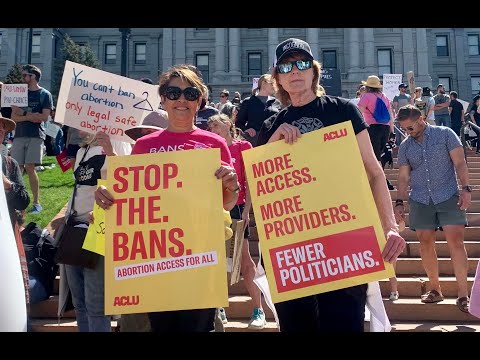

In May, a leaked draft opinion for the U.S. Supreme Court case, Dobbs v. Jackson Women’s Health Organization, confirmed our fear that the Supreme Court was ready to take away our ability to control our own bodies and our futures. The court finalized that decision in June, when it released its ruling on the Dobbs case, effectively overturning Roe v. Wade. The ruling allows states to criminalize people seeking and providing abortion care. We’ve already seen the devastating effects of abortion bans play out in Texas, and now that nightmare is a reality for millions more. No one should be forced to carry a pregnancy against their will and face the life-altering consequences of being denied this essential health care.
Overturning Roe v. Wade is an unprecedented action. Never before has the Supreme Court taken away a constitutional right it previously recognized. The consequences were immediate: An estimated 26 states can quickly move to ban abortion now that Roe is overturned, affecting approximately 36 million people who can become pregnant across the country. Attacks on abortion access disproportionately harm the same people who have always faced systemic barriers to care: communities of color, the LGBTQ+ community, undocumented immigrants, young people, those living in rural communities, people with disabilities, and people experiencing low incomes.
As if that weren’t bad enough, the right to abortion isn’t all that’s at stake. The legal argument made in the Supreme Court’s opinion cites the right to privacy — the same constitutional right that has historically been used to protect our right to use birth control, marry who we love, get the gender-affirming health care we need, and our voting rights — now these rights are at risk. Banning abortion is one pillar of an effort to legally codify harmful and baseless gender norms. While the Supreme Court is chipping away at abortion rights, elected officials have spent the last year passing an unprecedented wave of laws to erase transgender youth from public life, including by criminalizing life-saving gender-affirming care. These laws erode our fundamental right to autonomy in making critical decisions about our health, our identities, our relationships, our families, and our futures.
While Colorado is free of many of the most common abortion restrictions — mandatory waiting periods, ultrasound requirements, arbitrary gestational limits, or restrictions on what types of safe abortion procedures medical providers can offer patients — there are some restrictions. These restrictions limit access to abortion for some of our most vulnerable communities: young people, Coloradans with public health insurance coverage, and our neighbors held in jails and prisons. The biggest barrier to abortion access in Colorado is a state constitutional amendment that prohibits the use of public funds for abortion care. Colorado also restricts abortion access by requiring young people under the age of 18 to notify a parent or guardian before accessing care.
It’s going to take all of us to continue fighting for our rights. No one deserves to be forced to carry a pregnancy against their will and face the life-altering consequences of being denied essential health care. We have the power to fight back and we will continue to fight — in the courts, at the Capitol, in Congress, through ballot measures, and in the streets — for as long as it takes.
To learn more visit: https://www.aclu-co.org/en/campaigns/reproductive-rights
Living Unhoused: A Crime in Boulder
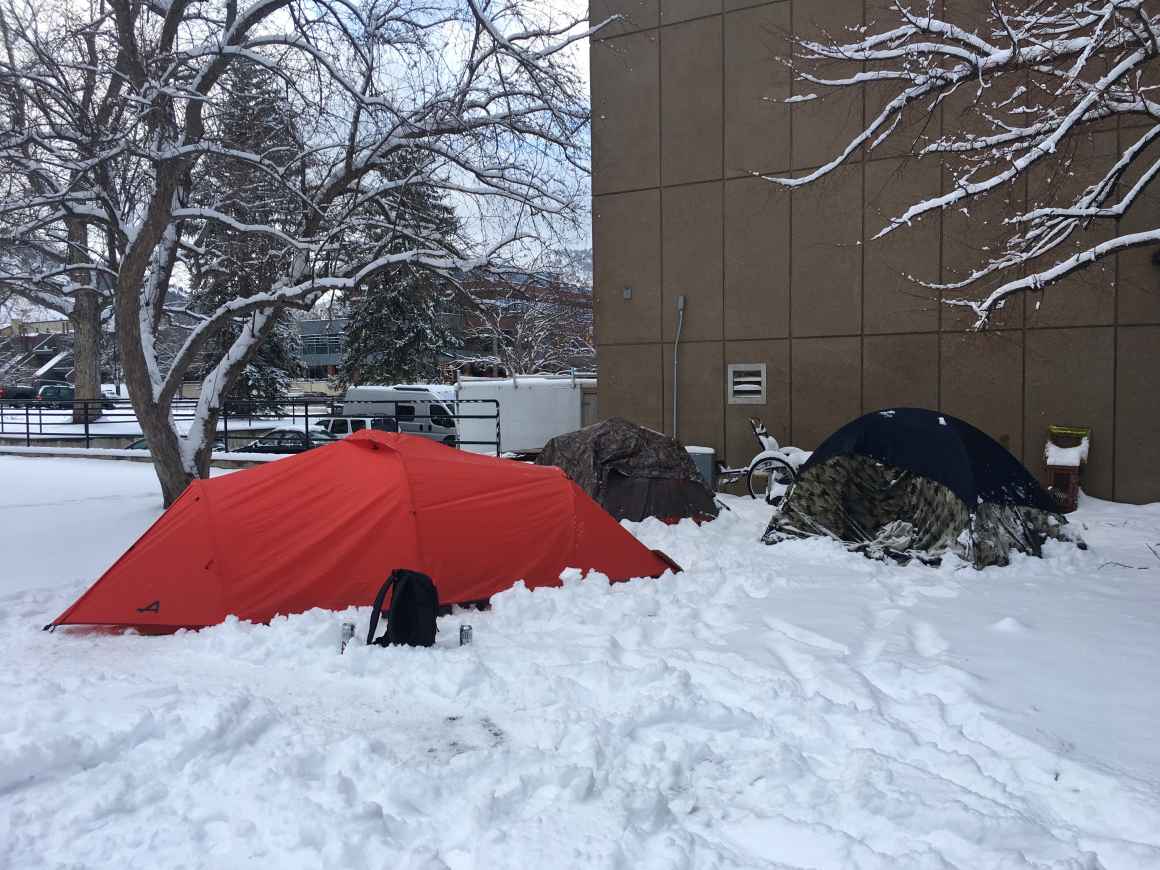
Boulder, the city that prides itself on being ranked the “the No. 1 place in America to call home,” has a homegrown houselessness crisis that is getting worse.
Troublingly, Boulder has responded to growing homelessness by seeking to expel visible poverty from the city rather than meaningfully supporting those experiencing it. The city has slashed funding for overnight shelter, dragged its feet on providing a space where people can seek daytime respite or navigation services, and rejected proposals for safe camping or parking options within city limits. And while, with one hand, it has deliberately restricted the legal options available to people experiencing houselessness in the city, with the other, it has doubled down on criminalizing those whom its own policy choices have left without meaningful alternatives but to shelter themselves in public spaces. Unhoused residents have told the ACLU of Colorado that officers enforcing these laws tell them to “get out of Boulder.”
ACLU of Colorado is taking Boulder to court over two ordinances that Boulder uses to penalize unhoused residents’ right to exist in the city by criminalizing the trappings of extreme poverty. The first ordinance prohibits sheltering or storing property outside under a tent or temporary structure. The other, known as the “camping ban,” forbids the use of “any cover or protection from the elements other than clothing,” as shelter outside. Boulder enforces these ordinances against people who have nowhere they can stay indoors, even when weather conditions outside are extreme. Because of these laws, people turned away from the shelter in midwinter face an impossible “choice”: forgo even the minimal protection of the thin blanket given to them when they are turned away from the shelter or face criminal penalties.
ACLU of Colorado warned Boulder that its enforcement of the two ordinances against unhoused residents without access to indoor shelter was not just bad policy but also inhumane, dangerous, and unconstitutional. When the city repeatedly failed to take any corrective measures, we sued.
Relying on the Colorado State Constitution, we argue that the city cannot make it a crime for people experiencing homelessness to live safely outdoors when they have nowhere else to go. We represent a courageous and committed team of plaintiffs — unhoused Boulder residents, their housed neighbors, and Feet Forward, a peer-led nonprofit organization that provides support and services to people experiencing houselessness in the city — all of whom are hurt by these cruel and dangerous laws.
Houselessness is a crisis, and no one should have to sleep outside on the street. But punishing our unhoused neighbors is not a viable, humane, or lawful path forward. Using a blanket or other basic shelter to protect oneself from extreme weather in Colorado should not be a crime.
Life After Roe
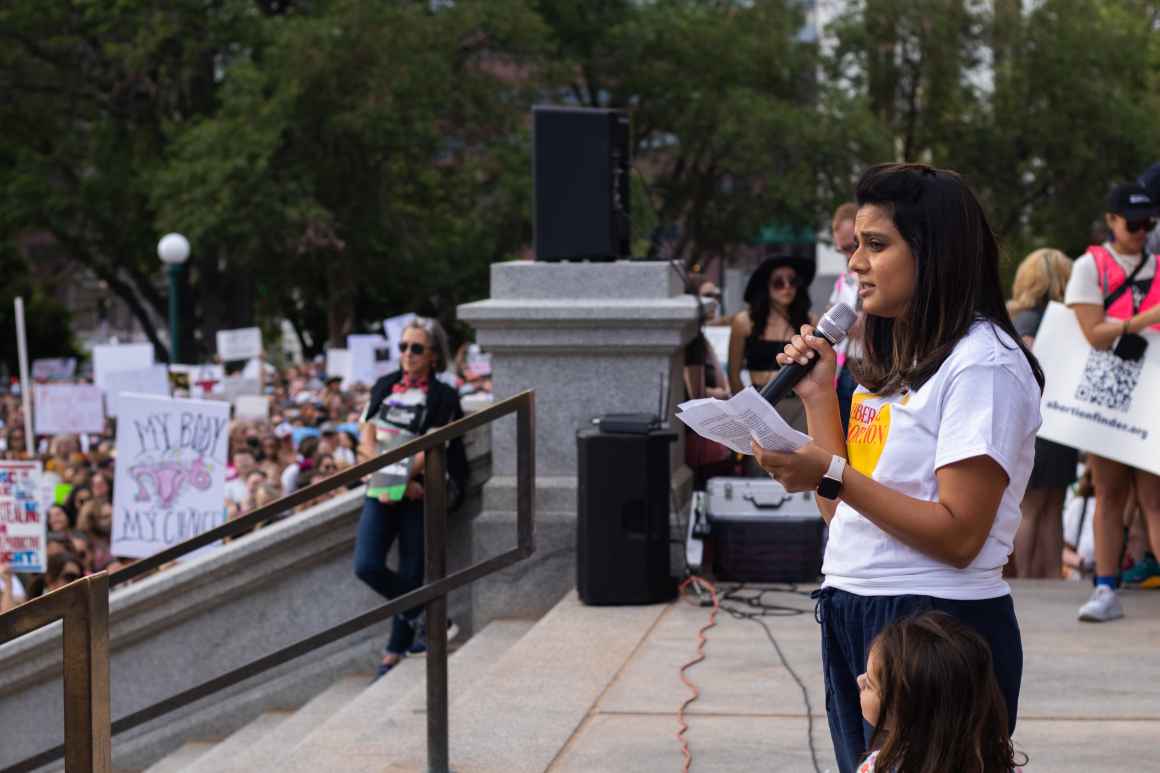
36 million people now face tremendous hurdles in getting access to abortion care in the United States. Many must travel out of their own communities and states to access healthcare in a state that hasn’t yet banned abortion services.
Now individuals face the cost of not only paying for this essential healthcare but funding travel to a state where they may receive care without fear of persecution. The impacts of pushing abortion out of reach will disproportionately harm the same people who have always faced systemic barriers to care — communities of color, people living on low incomes, undocumented immigrants, young people, the LGBTQ+ community, and people with disabilities.
But this isn’t entirely about reproductive rights, this devastating decision paves the way for anti-abortion politicians to further strip away human rights from millions of people who call America home. On the day the decision was made, Asma Keeler, former ACLU of Colorado Staff Attorney, shared this perspective:
First and most importantly, this opinion opened the door to allow legislatures across the country to eliminate the right to abortion. As most people now know, 26 states have in place laws that were unenforceable because of Roe, known as trigger laws. Those laws can took effect the morning the decision was announced and abortion became automatically illegal in many of those places, including Colorado’s neighboring states of Utah, Wyoming and Oklahoma.
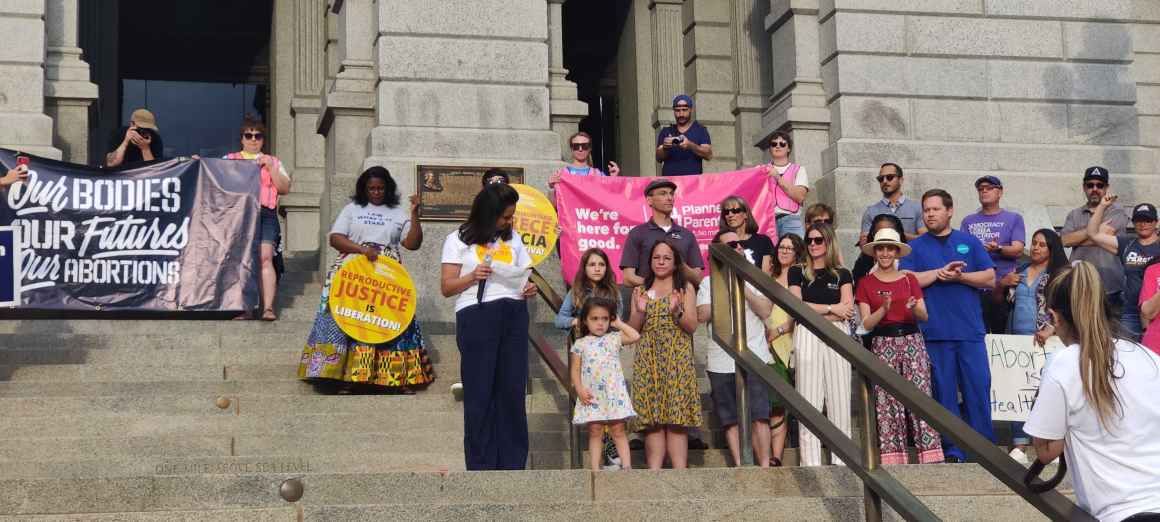
Justice Alito wrote himself that the Due Process Clause only includes the first eight amendments as substantive rights unless this radical court says otherwise. In fact, the same week as the Dobbs decision, the same make-up of justices gutted another well “settled” law and held that Miranda Rights are no longer enforceable in a civil suit.
While Colorado has protected abortion access for pregnant people seeking reproductive healthcare, thanks to the hard work of the Reproductive Health Rights and Justice Coalition and the passage of the Reproductive Health Equity Act (RHEA) the danger of this opinion isn’t limited to abortion rights.
Justice Thomas wrote in his concurring opinion, explicitly, that Griswold v. Connecticut, which grants the right to access contraception, Lawrence v. Texas, which invalidated the criminalization of same-sex intimacy and largely paved the way for the broader LGBTQ community to love one another in public, and of course Obergfell v. Hodges, which granted the right to same-sex marriage, should all be overruled.
The court took pains to consider the history and tradition of our country and spent an inordinate amount of time focusing on how long abortion was a crime. But an essential human right to bodily autonomy being criminalized by legislators can hardly be the standard by which we should hold ourselves. As previously mentioned, same-sex intimacy and same-sex marriage were also a crime for the better part of the 20th century. Historically, so too was a woman’s right to vote and a Black person’s ability to exist in public places.
Colorado remains a state where people can feel safe in their modern-day views of liberty, but 36 million people soon will not have that liberty. The existing web of roadblocks to get an abortion are part of a cruel and calculated plan to disrupt time-sensitive, essential health care.
While Colorado has laws in place, like RHEA, that offer more robust protections here — that doesn’t mean our work here is done, and we will not back down. After the decision came down Friday June 24th, the ACLU sued the states of Texas, Kentucky, and Florida that same weekend to challenge abortion restrictions on state law grounds. The ACLU will continue to fight for access to reproductive care.
As the court told us, we can expect challenges to many other well-settled rights including our right to access birth control, gender-affirming care, our voting rights, and the right to marry who we love. We will keep fighting and advocating for essential reproductive health care until all people can decide if and when to have a child.
Justice on The Go
By Julian Camera, Field Organizer
When ACLU of Colorado’s Executive Director, Deborah Richardson, took on the role in 2021 she said, “First thing’s first; to be for the people, we must be of the people.” She created an initiative called Expanding the Table for Justice – a statewide listening tour designed to learn what the people of Colorado truly want when it comes to the fight for equal and accessible civil rights and civil liberties.
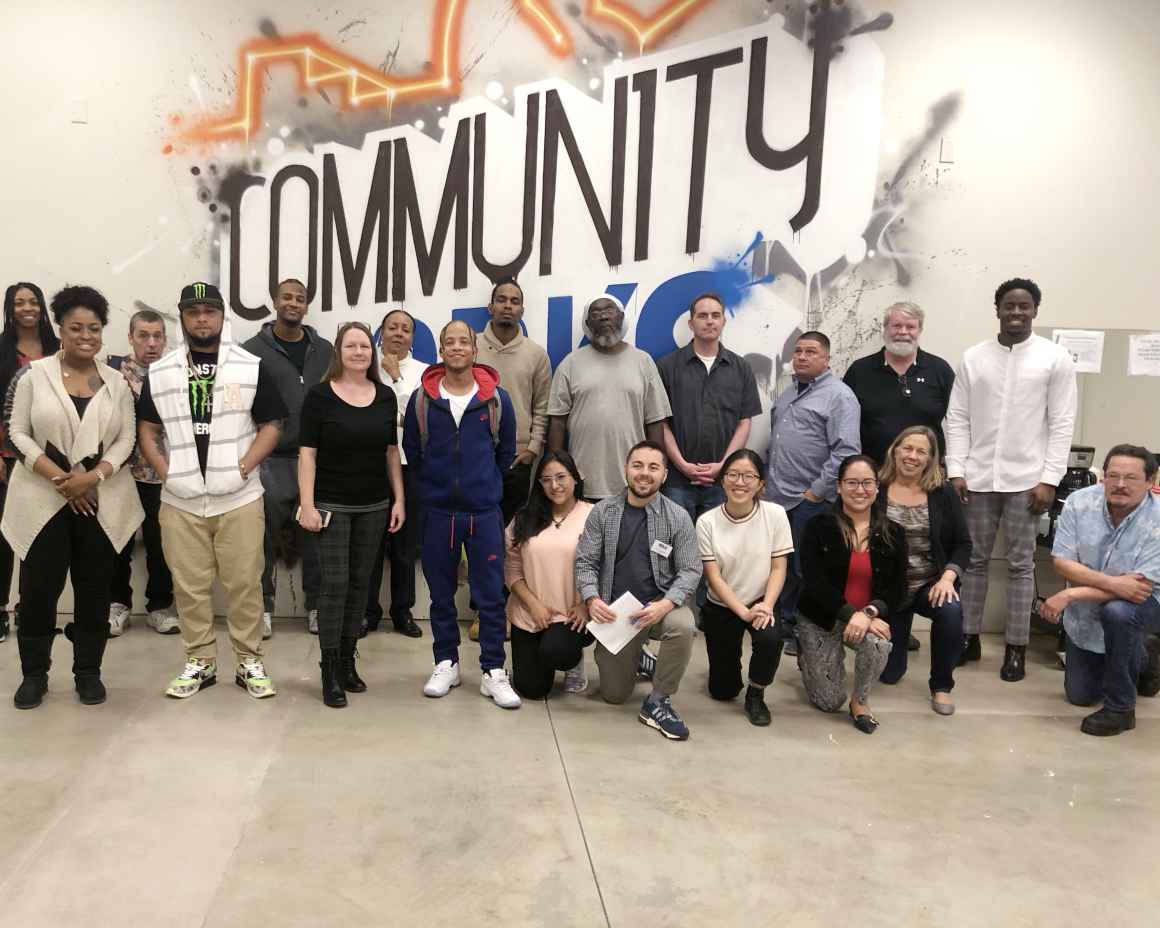
From May 2021 to June 2022, ACLU of Colorado staff members traveled the state and met with local community members to learn first-hand about the barriers they face accessing their civil rights and liberties. From Durango to Greeley, the Denver-metro area to Pueblo, Colorado Springs, Montezuma, and beyond, we heard countless stories of discrimination, microaggressions, and abuses of power by those in influential positions in their communities.
We met with people from all different walks of life – students, teachers, elected officials, parents, employees, those living with a criminal record, immigrants, community organizers, service providers, and business owners – who all had two things in common: 1) an overwhelming frustration with the number of problems their communities currently face, and 2) a true love for their communities and a dedicationto protecting their people.
Access to affordable housing was an issue brought up in every conversation. We heard concerns about the price of rent, application and income requirements, voucher programs, zoning laws, camping bans, and how Denver’s rapid development has had a reported impact on people in every corner of Colorado. Many people argued that, “housing should be a human right.”
Despite Colorado’s progressive laws around reproductive rights and LGBTQ+ protections, many rural communities reported hostility toward LGBTQ+ students. There were numerous reports of schools prohibiting students from forming gay-straight alliance (GSA) clubs, despite a federal law that says a school must allow students to form a GSA if the school permits other non-curricular clubs to form.
Other students reported that they are still taught abstinence-only sexual health education despite 2019 legislation ACLU helped pass that requires comprehensive sexual health education to be taught at public schools that teach sexual health education. Comprehensive curriculum includes healthy consent and LGBTQ+ health needs, and deemphasizes abstinence-only as a core value of intimate relationships.
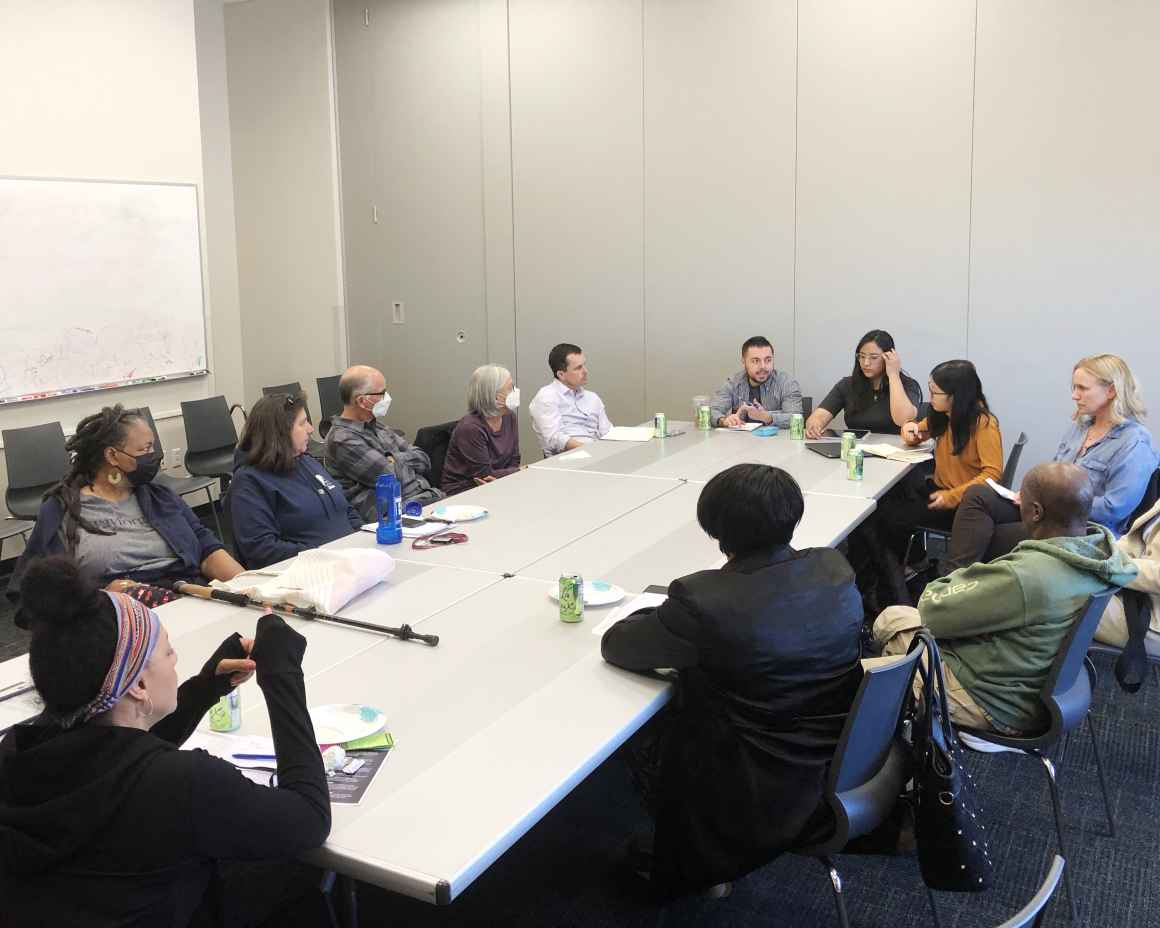
After meeting with hundreds of community members throughout the state, we heard accounts of patterns of racism, economics, hostility directed at certain groups stemming from religious beliefs, and governmental/legal barriers impacting people’s access to civil rights and civil liberties. There was an emphasis on the need to educate and engage people in local elections such as sheriff races and school board seat races. People talked about the prevalence of antagonistic elected officials in many areas of Colorado. They argued that elected officials who are elected to work on behalf of all people are only representing some people.
Later this summer ACLU of Colorado will release a public report of our findings, detailing our community conversations and what changes the people of Colorado want to see. We are grateful to our partners throughout the state who welcomed us to join their tables and talk about how we can achieve justice and equity for all people in Colorado. One thing is for certain: among Coloradans, hope is still alive.
Spotlight on Mark Silverstein, Legal Director
After 31 years serving the American Civil Liberties Union, ACLU of Colorado Legal Director Mark Silverstein recently announced his upcoming retirement.
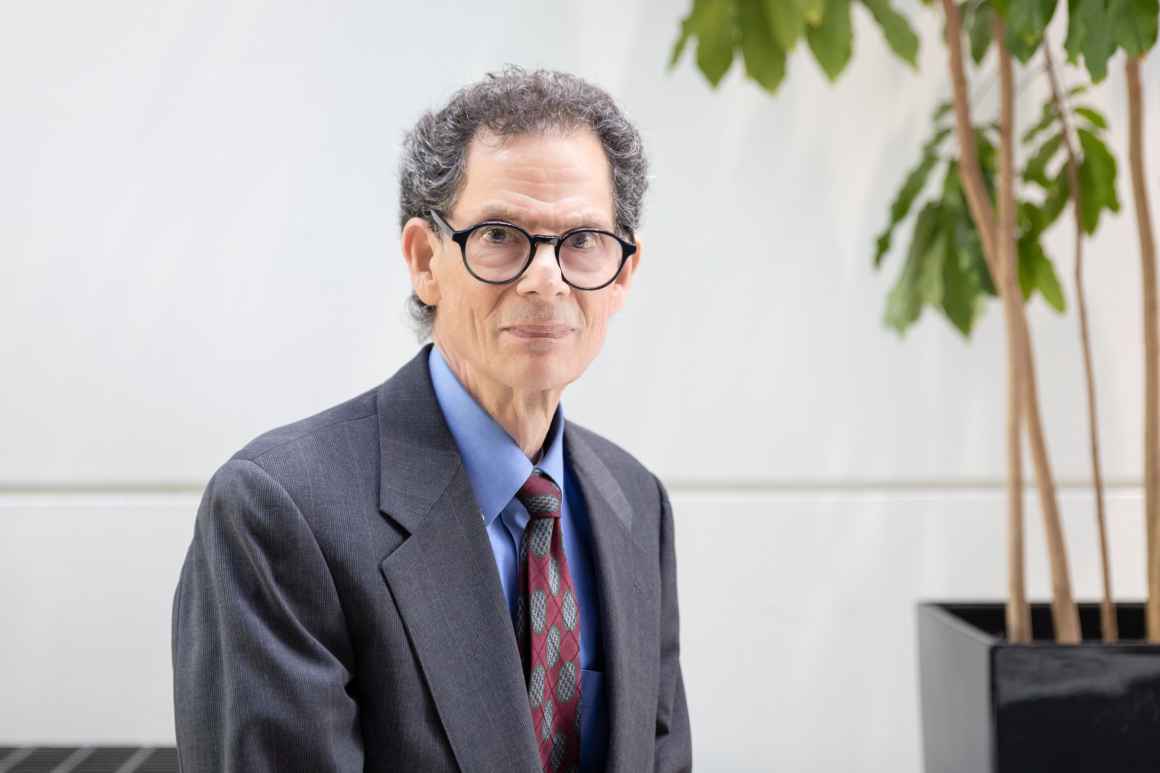
Silverstein was serving a felony sentence at the Illinois State Penitentiary for possession of marijuana. It was actually hemp he picked himself, useless for getting high, but commonly found growing wild in backwater fields, a legacy of officially sanctioned cultivation during WWII. A year into his sentence, the legislature reduced the possession penalty and made the crime a misdemeanor. Silverstein wrote to the ACLU, pleading, “Help! I’m doing felony time for a misdemeanor. Get me out!” A volunteer intake worker turned him down in an individualized handwritten letter. Silverstein spent 17 months in the penitentiary before receiving parole in 1971.
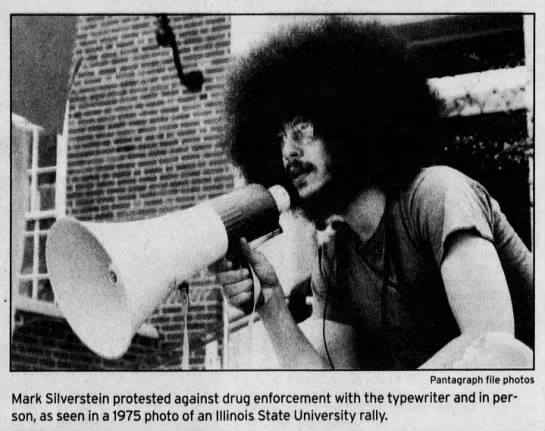
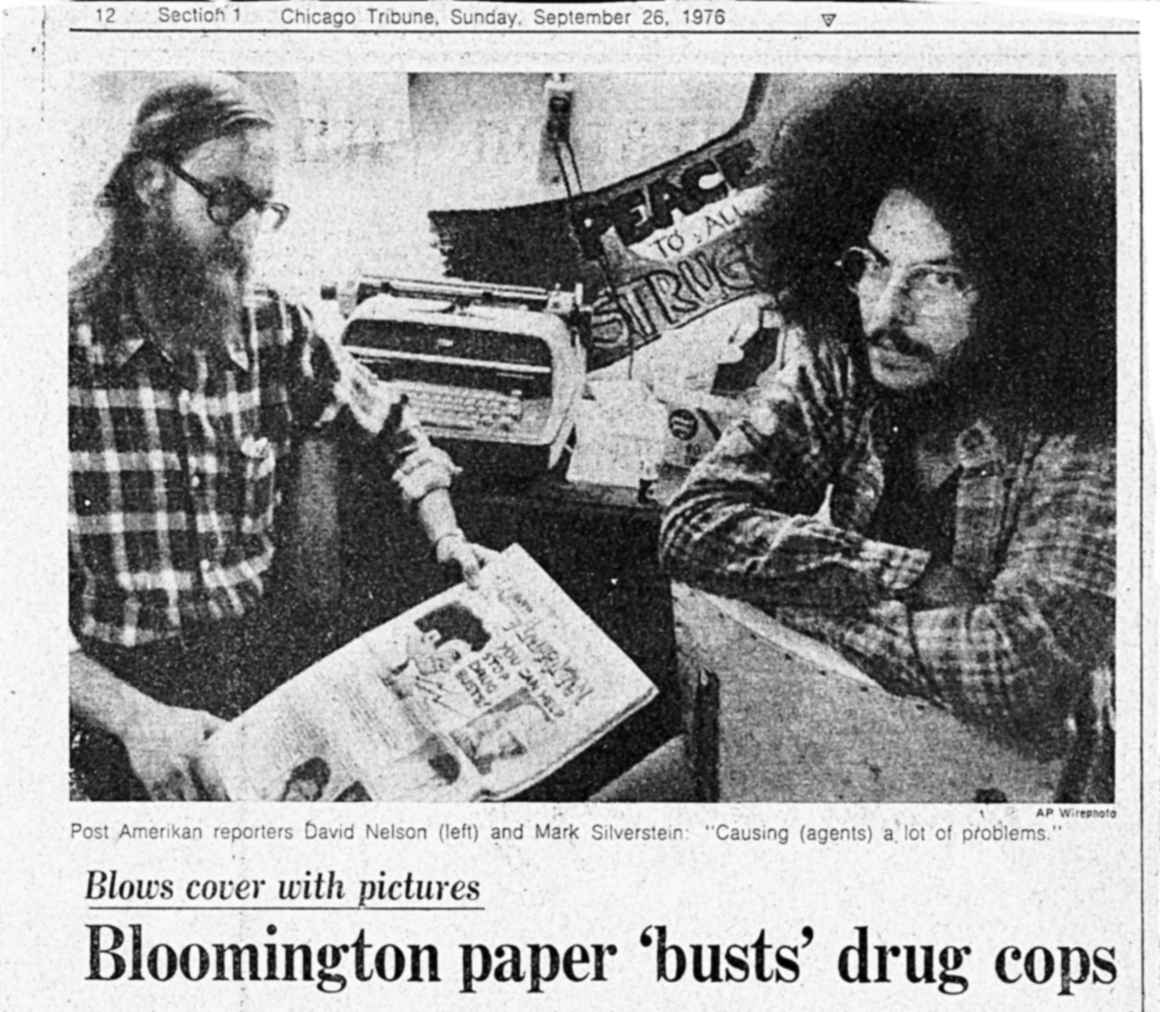
In 1986, Silverstein enrolled in the Illinois College of Law. He spent his summers working for the ACLU of Southern California in Los Angeles, and the ACLU of Illinois, respectively. After graduating in 1989 (first in his class), he clerked for a year for a federal district court judge in Chicago and then clerked for a year for a judge on the Ninth Circuit Court of Appeals. In 1991, he returned to the ACLU of California as a staff attorney before coming to Colorado in 1996.
During Silverstein’s 26-year tenure in Colorado, the ACLU of Colorado legal team, bolstered by scores of volunteer attorneys, have litigated hundreds of cases to defend and expand the civil liberties and civil rights of Coloradans. These cases challenged a myriad of abuses of power at all levels of the Colorado government, targeting racial profiling, illegal searches, groundless arrests, police beatings, and arbitrary deprivations of liberty, while fighting for free expression, government transparency, religious freedom, reproductive rights, and LGBTQ+ rights.
ACLU of Colorado’s legal team has fought back on behalf of people who are incarcerated, immigrants, people of color, people experiencing homelessness, and people with low incomes caught up in the criminal justice system’s spiral of fines and fees. In addition, the ACLU of Colorado’s legal advocacy has, without resorting to litigation, often persuaded government officials to rescind or repeal a challenged policy, practice, or ordinance.
One of Silverstein’s memorable cases was the ACLU’s class-action challenge to the Denver Police Department’s “Spy Files.” The ACLU uncovered evidence that the department’s “Intelligence Unit” was collecting information about the expressive activities of peaceful protesters, monitoring the activities of law-abiding advocacy groups, and then labeling them in police files as “criminal extremists.” A settlement ended the decades-long practice.
Over the decades, the ACLU of Colorado Board of Directors has twice tapped Silverstein to take on additional duties as Co-Acting Executive Director during interim periods when the position was vacant. Silverstein received the Staff Leader of the Decade award during the ACLU of Colorado’s Diamond Jubilee Celebration in 2012.
Silverstein will continue to serve as Legal Director while the organization conducts a nationwide search for his replacement. He will then take on a new role, providing counsel as Legal Director Emeritus.
“With all this ACLU in my history, it’s not like I could ever leave the ACLU behind,” Silverstein noted in an announcement to the ACLU staff. “I remain 100% committed to the ACLU, its mission, and to continuing, with each of you and with all of you, our important work together, both in my current role and in my eventual future Emeritus role. There’s no leaving our shared struggle for justice, equality, freedom, and the better world to which we aspire.”
Legal Roundup
C.G. v Siegfried, et al.
In C.G. v Siegfried, et al., the ACLU and the ACLU of Colorado participated in oral arguments as amicus at the Tenth Circuit Court of Appeals, urging the court to protect students’ free speech rights when deciding whether, and when, public schools can discipline young people for their speech outside of school. The case involved an offensive social media post by a young person on Snapchat that was posted from a local thrift store on a Friday night. The snap included a photograph of the student and three friends, including one person wearing a World War II-era hat, with an anti-Semitic caption. Within hours, the student took down the snap and apologized for it. Nevertheless, the school expelled the student. The school did not claim that the snap constituted bullying or harassment but argued that it could punish the student just as it could discipline students for in-school speech that has the potential to disrupt the school environment.
This was the first case about a school’s authority to discipline students for online, off-campus speech to reach a federal appellate court since the ACLU’s victory last June in Mahanoy v. B.L., in which the U.S. Supreme Court held that schools do not have the same authority to regulate and punish student speech outside of school as they do in school contexts. As amicus, the ACLU denounced the ignorant and offensive language used by the student and focused on the implications of the case not only for C.G. but all young people.
Hodgkins v. Frontier Airlines
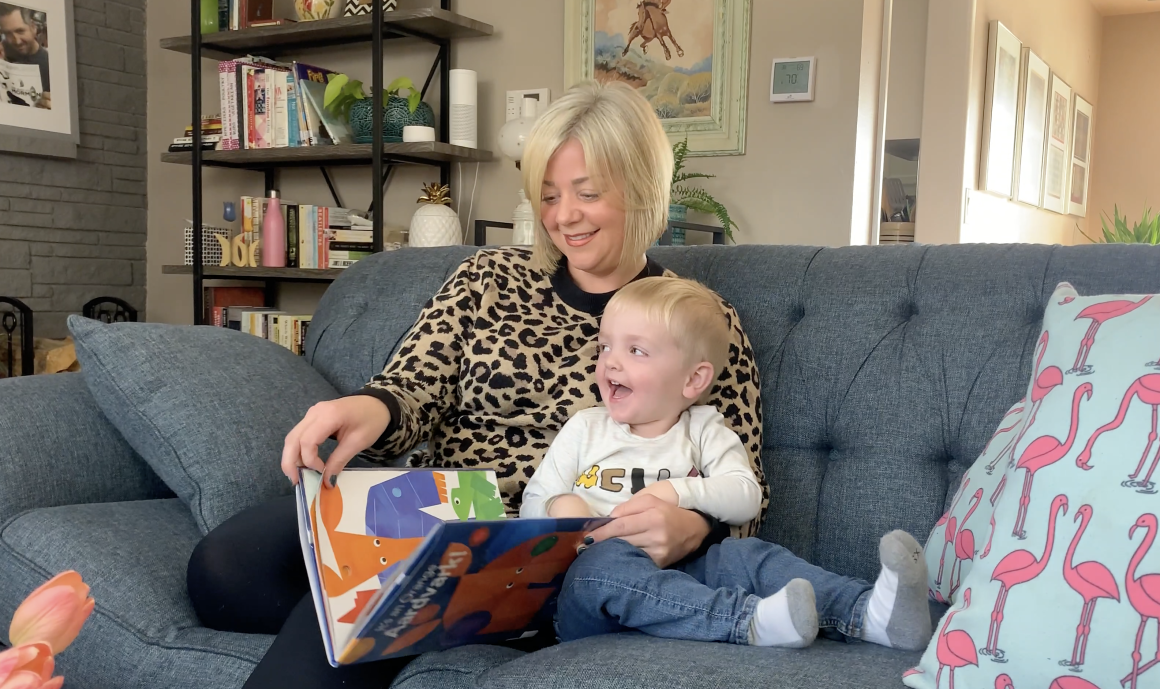
In April 2022, ACLU of Colorado settled Hodgkins v. Frontier Airlines, our case on behalf of four flight attendants who alleged that Frontier Airlines discriminated against pregnant and lactating employees. As part of the settlement, Frontier agreed to several policy changes that will better address the needs of pregnant and lactating flight attendants, including a policy permitting flight attendants to safely pump during flights with the use of wearable breast pumps.
Bailey v. City of Aurora et al.
In May 2021, the ACLU of Colorado sued the City of Aurora for blocking a candidate with a prior felony conviction from running for public office. Candice Bailey, an Aurora resident and community leader for racial justice, intended to run for an at-large position on the Aurora City Council, but the Aurora City Charter and City Code forbade her from being a candidate or holding public office based solely on her past conviction. The judge granted a permanent injunction barring the city from enforcing the challenged laws against our client and held that Aurora’s charter violates two different provisions of the state constitution — one guaranteeing equal protection of the laws and the other generally restoring the rights of citizenship, including the right to run for office, to people who have completed their sentences. The case is one step forward in the fight against the harmful and racialized collateral consequences of a conviction.
Toward Liberty
By Crosby Canotas, Development Coordinator
After two years of hosting virtual gatherings, ACLU of Colorado is thrilled to announce the return of its annual celebration, this year named Toward Liberty: Celebrating 70 Years of Action, on September 29 at the Ritz Carlton Denver. Individuals and organizations making a profound and lasting impact in the fight for civil liberties and civil rights in our communities will be honored at the in-person celebration. It will also be a time to celebrate all the ACLU of Colorado has done since it formed 70 years ago.
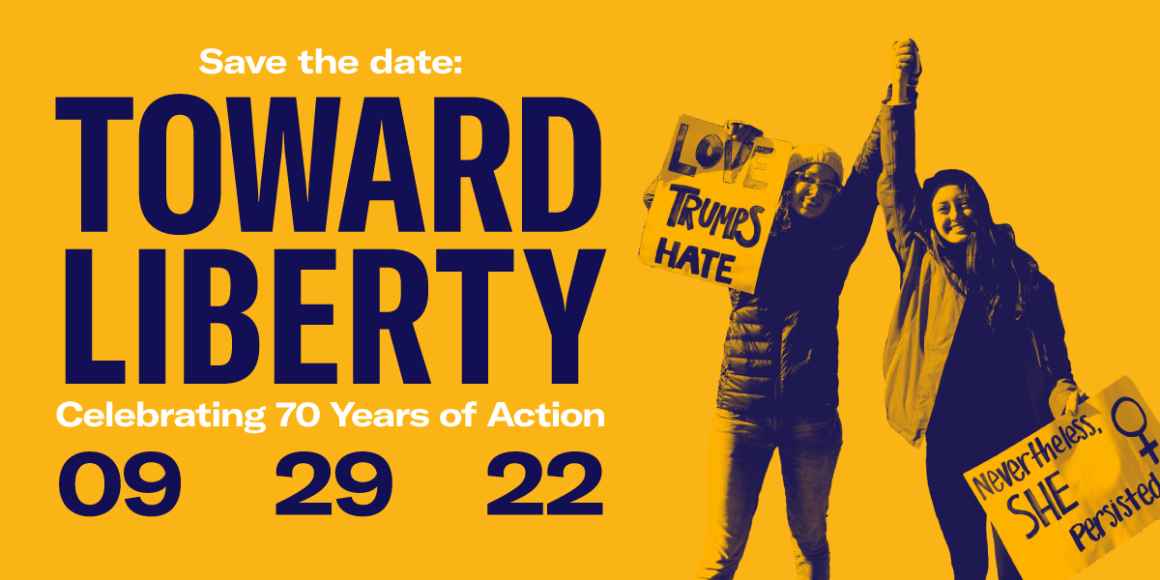
2022 Honorees
Senator Pete Lee will receive the Carle Whitehead Memorial Award for his transformative work on criminal legal reform and restorative justice efforts. Senator Lee serves Colorado's District 11 covering El Paso County. He is the chair of the Senate Judiciary Committee and has sponsored bills on juvenile justice reform, voting rights, and bail reform. He was formerly a representative in the State House of Representatives in House District 18 covering El Paso County. Prior to his political career, Senator Lee practiced law in Colorado for 25 years.
The Harm Reduction Action Center will receive the Ralph L. Carr Award in recognition of its tireless work educating, empowering, and advocating for the health and dignity of Denver’s community members with substance use disorder. Since 2002, the center has offered programs like needle exchange services, Naloxone training, and neighborhood clean-up that have helped curb the spread of HIV, Hepatitis C, and accidental overdoses in Denver. It also works closely with lawmakers to advocate for statewide legislation in favor of overdose prevention sites.
Timothy Macdonald, Matthew Douglas, Diana Sterk, Ed Aro and the rest of the Arnold & Porter trial team along with Elizabeth Wang of Loevy & Loevy will receive the Edward Sherman Award for their outstanding legal work protecting the constitutional rights of clients that were subjected to police brutality during peaceful protests following the murder of George Floyd in 2020. Arnold & Porter LLP provided a team of pro bono attorneys to partner with the ACLU of Colorado in representation of seven of the plaintiffs while Elizabeth Wang, a partner at Loevy & Loevy who litigates civil rights and post-conviction cases in Colorado and Illinois, represented five clients. The entire trial team worked together to obtain a $14 million verdict against the City of Denver for violation of the protesters' rights.
Dan Recht will receive the Martha Radetsky Award for his enduring dedication to the ACLU of Colorado as both its Board of Directors Chair and Legal Panel Chair. The firm he co-founded, Recht Kornfeld PC, has been a vital supporter of the ACLU for many years. Among his many achievements, Recht’s work includes successful litigation against police departments seeking to infringe on the First Amendment rights of Coloradans.
Vic Vela will receive the Larry Tajiri Media Award for his more than 20 years of professional journalism covering government and politics in Colorado. Vela was a five-year member of the Colorado Capitol Press Corps and now hosts a podcast with Colorado Public Radio. His podcast, Back From Broken, elevates stories of those recovering from addiction, mental health issues, and more
Donor Spotlight: Regina & Judge Gary Jackson
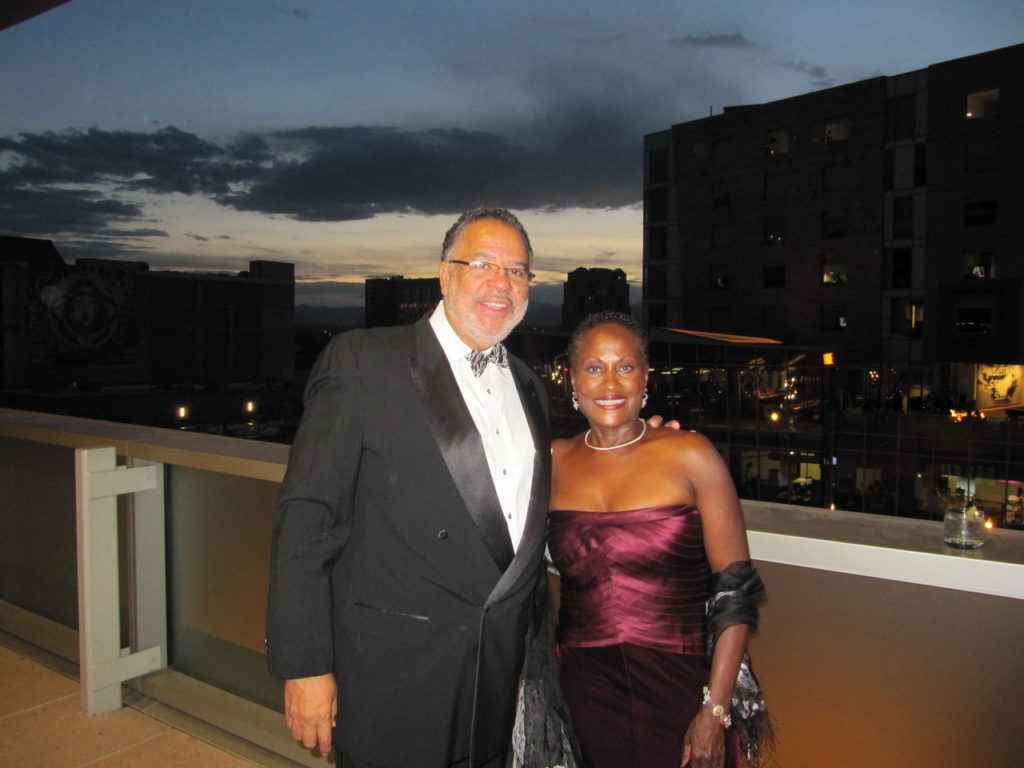
Born in Chicago in 1950, Regina vividly remembers the violence perpetrated against Black people and civil rights workers in the south, and the murders of Martin Luther King, Jr., Viola Liuzzo, President John F. Kennedy, and others. These memories served as a catalyst for Regina’s work to dismantle white supremacy in the United States. Regina is the proprietor of Action Jackson Realty in Denver, an anti-racist activist, and the founder of Race2Dinner, which facilitates conversations about race with white women in a dinner party setting. Jackson and co-founder Saira Rao have hosted Race2Dinner events since 2019 when Jackson joined Rao’s campaign run for Congress. The two made the decision to offer their paid services to white women wanting to have candid discussions about white supremacy. More recently, Race2Dinner added two other programs to the roster, Race2Community, and Race2Self-Actualization. Jackson co-authored the book White Women: Everything You Already Know About Your Own Racism and How to Do Better, which will be available later this year. She is also the Executive Director and protagonist of the documentary Deconstructing Karen, which had its U.S. premiere on June 26, 2022, at Geena Davis’ Bentonville Film Festival in Bentonville, Alaska.
Judge Gary Jackson, Regina’s husband, earned his bachelor’s degree in political science from the University of Colorado. He later earned his Juris Doctor (J.D.) degree from the University of Colorado School of Law in 1970. When he began his law studies, there were no Black professors, and he was one of just a handful of Black students in his graduating class. Judge Jackson has worked with the Denver district attorney’s office, and the U.S. attorney’s office, and went on to found DiManna, Eklund, Ciancio & Jackson law firm, later known as DiManna & Jackson. That partnership continued until Judge Jackson was appointed to the Criminal Division of the Denver County Court Bench in 2013, a position he held until 2020.
Judge Jackson has advocated for judicial diversity throughout his career. He was one of the founders of Colorado’s oldest minority bar association, the Sam Cary Bar Association. In February of 2022, after more than 50 years of service to his community, Judge Jackson was inducted into the Blacks in Colorado Hall of Fame.
He has been recognized with numerous awards and accolades throughout his career including the Colorado Bar Association’s Award of Merit (2011), the National Black Prosecutor’s Norman Early Lifetime Award (2018), and the Denver Bar Association Judicial Excellence Award (2020), among many others.
The Jacksons have also been heavily involved in the renovation of Lincoln Hills near Nederland, Colorado. The area was originally developed in 1922 as one of only four vacation resorts in the country that catered to Black families. It now facilitates outdoor education, cultural history, and youth workforce programs for Denver metro and Front Range communities.
One of the many ways the Jacksons push for real and lasting change is through their support of the ACLU of Colorado. “We are grateful for the financial and active support of Regina and Gary Jackson. In their personal and professional lives, they exemplify the mission and work of ACLU of Colorado,” said Deborah Richardson, the Executive Director of the ACLU of Colorado.
In addition to being committed donors, Regina served on the ACLU of Colorado’s Board of Directors from 2009 to 2012. Regina said, “We’ve got (the erosion of) voting rights, immigrant rights, LGBTQ rights, the banning of books, refusal to teach real history. Basically, the U.S. is in a backwards slide, the ACLU helps protect everyone’s rights.” The Jacksons are inspired by the ACLU of Colorado’s mission and look at the history of the organization as both legacy and inspiration.
Spotlight on Miles Jones
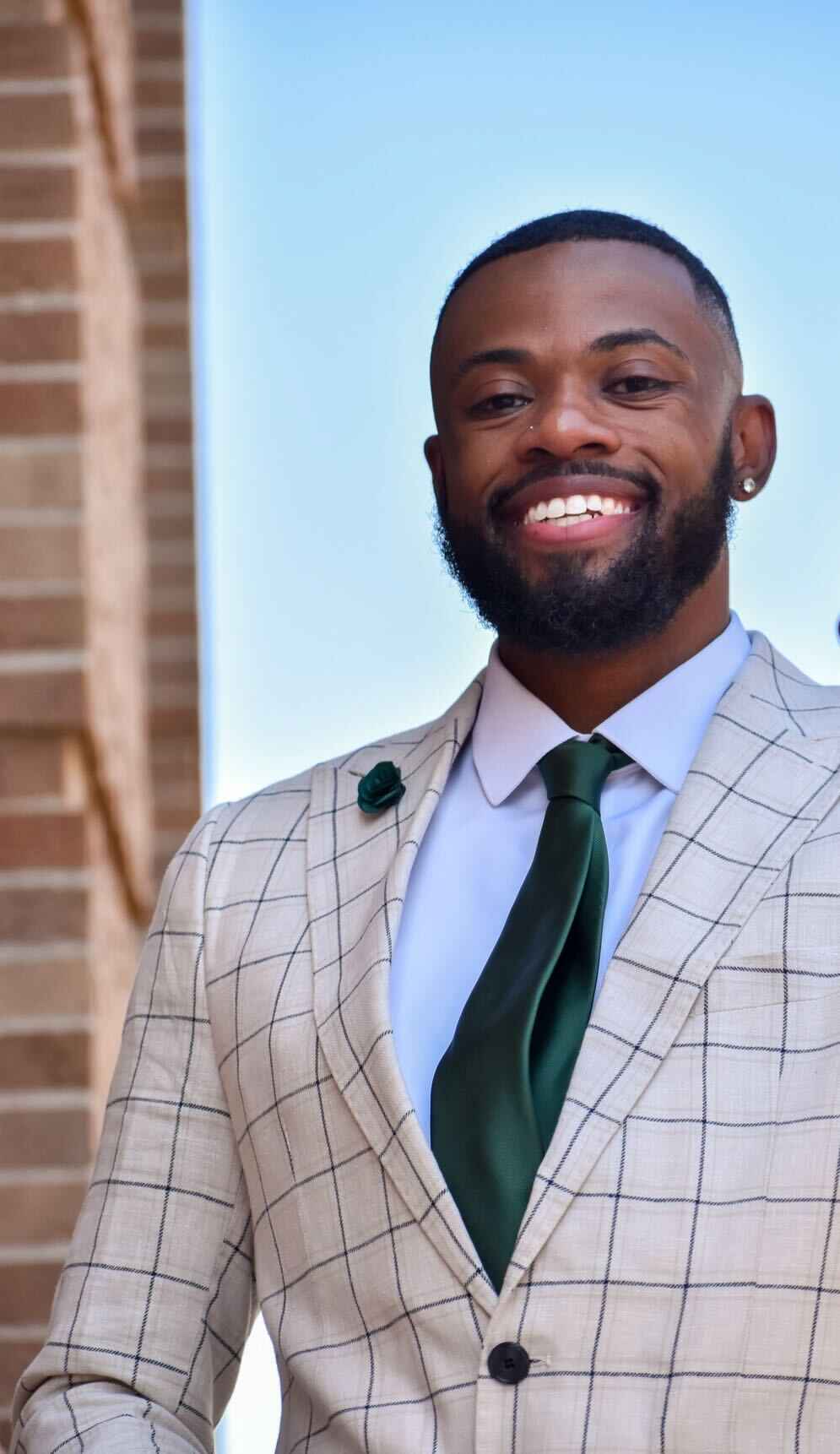
The Breakroom provides staff the chance to ask complicated questions in a safe, judgment-free environment that is guided by organic conversation centered on specific, complex topics pertaining to justice. Rather than having 10 – 15 guided questions asked one after the other to move the conversation along, the goal of the Breakroom is to allow the conversation to flow and remain organic for people to feel comfortable either sharing experiences around a topic or asking deeper questions to gain further knowledge.
As an intern with the ACLU of Colorado, I have been inspired by my colleagues. In addition to the tremendous work they do in the community, each colleague brings a distinct expertise. The wide range of lived experiences among our staff makes us lucky to be able to engage appropriately with the diverse communities we serve. Nevertheless, everyone has blind spots — no one can be an expert on all subjects. The ACLU of Colorado identified a need to foster productive conversations around these learning areas. Think of it like Lebron James' HBO show, The Shop. Star personalities come in; rather than chat about pop culture, the show facilitates conversations on real-world issues.
The design of the Breakroom is similar to James’ show The Shop. It is meant to provide the staff of the ACLU of Colorado with a safe space to learn and discuss various topics that staff are interested in gaining more information about: questions centered around race, gender, reproductive rights, or immigration. These are sensitive topics. In order to generate more engaged, authentic discussions, we needed to design a program that was centered on real learning, rather than on the worry that the wrong question might offend.
Since its pilot launch in July of 2021, we have had seven sessions of The Breakroom with topics focusing on colorism, mental health, cancel culture and free speech, bipartisanship, and anti-semitism. The impact that this program has had on staff has been major. Many staff have reported feeling moved in positive ways because of the topics that were brought up, while also walking away from the conversation feeling both informed and empowered.
Those are my two biggest goals with The Breakroom: empowering those who feel that they are unheard, while educating people who are willing to be informed. Now, many of the staff are looking forward to the Breakroom sessions and hope that it can become more of a tradition as time goes on. Creating these safe spaces for people to discuss sensitive issues has allowed them to bond outside of the day-to-day work conversations. The Breakroom provides insight into people's lives and what makes them who they are by allowing them to share how different experiences have shaped who they are today. I have always admired the ACLU of Colorado’s relentless commitment to storytelling, particularly of those unable to speak for themselves. The Breakroom continues in that tradition.
My time at the ACLU of Colorado’s communications department has made me a better activist and a better ally to those fighting for their civil rights. To carry this practice forward, I look forward to finding ways to expand The Breakroom. One day, I hope to see it practiced on a larger scale — not only with the ACLU of Colorado, but in classrooms and workplaces across the nation.
Spotlight on East High School Students
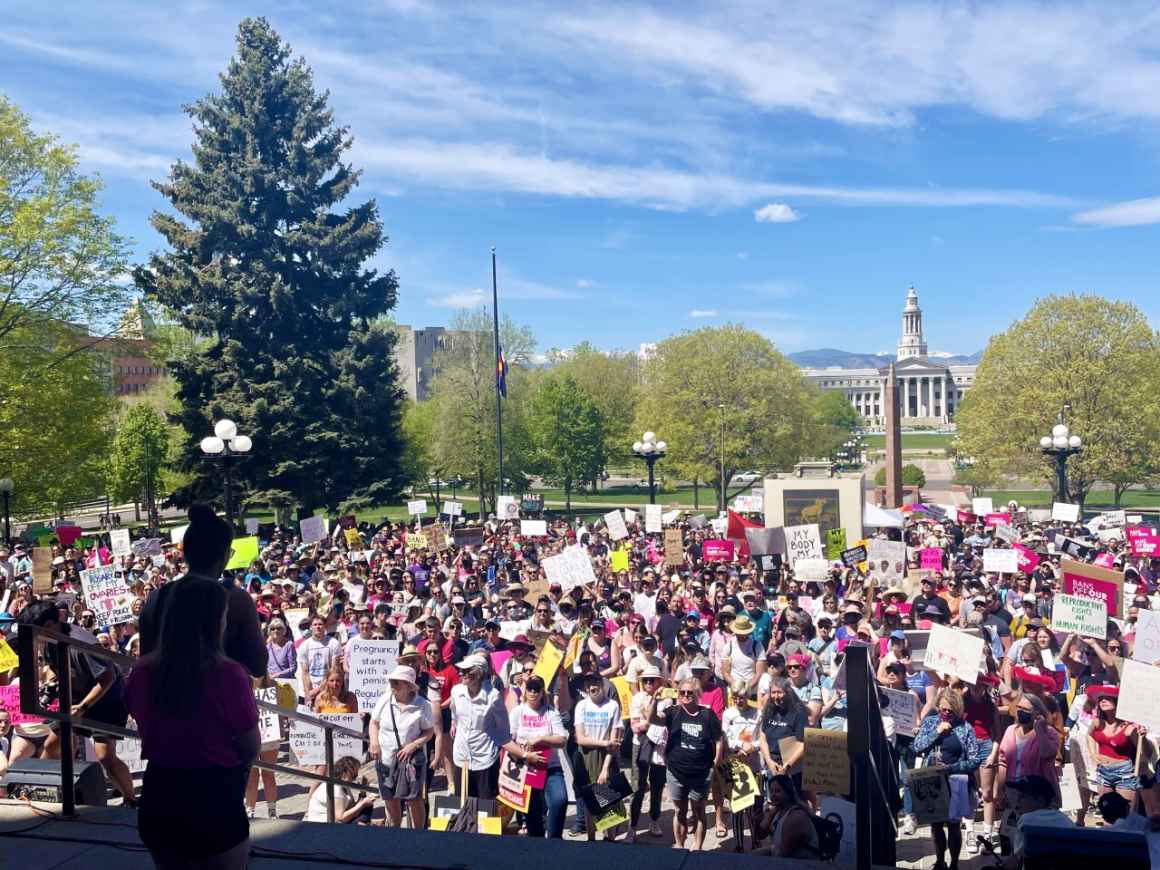
At a Bans Off Our Bodies rally in May, two young leaders at East High School were invited to speak and share their disappointment and frustration with the draft opinion. They also spoke of the action they’ve taken to advocate for the rights and freedom of young people and other impacted people within their community who can become pregnant.
The following are the remarks Lewis and Joucovksy shared.
Jadyn Lewis
My name is Jadyn Lewis (she/her). I’m an East High School junior, President of our school’s Women’s Alliance, and the Secretary of the Black Student Alliance.
Colorado recently passed the Reproductive Health Equity Act, which codifies the right to abortion as a fundamental right in the state, so we’re well-protected here in that regard. However, people with uteri in states across the country do not have the same access to reproductive healthcare. As I think about the consequences of banning abortion, overturning the precedent set by Roe v. Wade, and regressing back almost 50 years in history, I am overcome with immense disappointment. I am particularly frustrated because I know this decision will have a disproportionate effect on communities of color.
The systems of racism in our country overlap with the effects of limited or banned access to abortion, creating a multitude of intersectional racist, sexist, and classist ramifications for people of color with uteri. This is the most true for Black women. The healthcare system has failed Black and brown communities. These communities face a disproportionate lack of access to quality care and information and also face inadequate and biased healthcare services. This has led to an extremely high maternal mortality rate for Black women in America, which will only increase in places where abortion is banned. These health risks are in addition to the financial and mental health consequences of an abortion ban. These bans will further inhibit the ability people of color with uteri have to progress in an already oppressive society, trapping them in a perpetual cycle of barriers, poverty, and for some, maybe even death.
Income inequality will only exacerbate this cycle, as wealthy individuals can more easily fly to other states or countries to receive an abortion, while low-income individuals cannot. The leaked draft written by Justice Alito states that Roe v. Wade was “egregiously wrong from the start,” and that its legal reasoning was “exceptionally weak.” But condemning a pregnant person who wishes to have an abortion is “egregiously wrong.” The reasoning politicians have for thinking they should have any say in what a person with a uterus wants to do with their own body is “exceptionally weak.” It is true that abortion is a human right, not just for the rich and white. That is why it is imperative that we stand together in solidarity and use our collective power and unique voices to advocate for the right to an abortion, or the right to bodily autonomy, and for the right to choose what we do with our own bodies and with our own lives.
Jadyn Lewis, was also born and raised in Denver, and was a junior at East High School at the time of the rally and is going into her senior year. After graduation, Jadyn plans to study sociology and women's studies in college. She aspires to work with a non-profit organization.
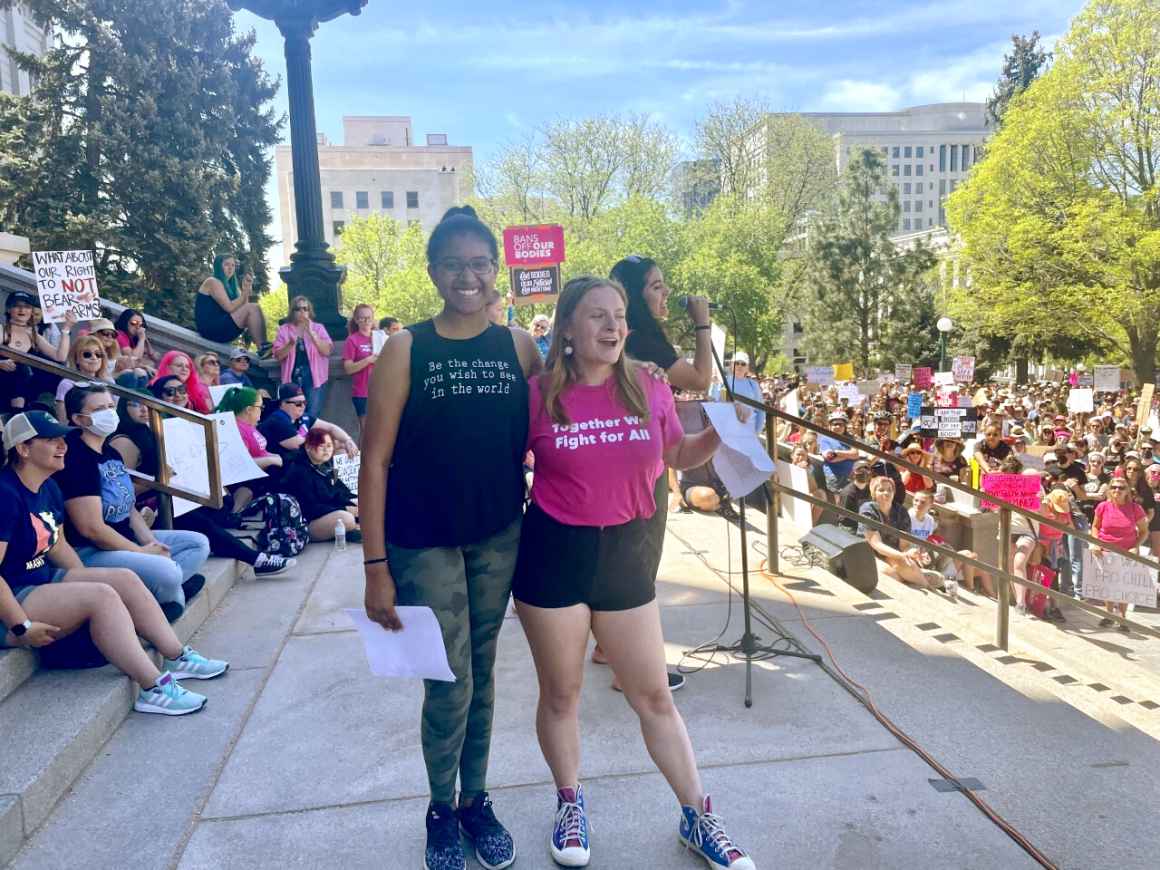
My name is Sofia Joucovsky (she/her), and I’m a senior at East High School. I’m the president of our East Advocacy and Action club. I work on expanding student knowledge of Title IX and encouraging sex education for the student body.
I’ve been extremely fortunate to have the means to be able to put my education first, knowing not everyone is able to do the same. Having a child significantly reduces students' ability to succeed in school and continue onto higher education. This is especially true among people with uteri. It’s almost impossible to graduate high school and pursue a normal college experience after giving birth. Every single person who gets pregnant deserves access to an abortion. They deserve to be able to put their education and their career first. It’s impossible to achieve gender equality without people, especially women, being able to put career over family.
We can’t shame or fault someone for choosing to have an abortion, no matter the situation they were in that left them pregnant. One in four women in the U.S. will have an abortion in their lifetime, and it’s something that needs to be normalized as a part of modern society. In the 23 states that would ban abortion if Roe is overturned, millions of people will lose the right to make this decision. We need to fight to make sure that everyone has the right to choose whether they want to carry a child to term or start a family.
I’m so grateful that many of my classmates and I have been able to put our education first. We’re able to make grand, ambitious plans for our futures that don’t involve raising children until we’re financially, emotionally, and physically prepared for it. Students in other states will soon not have the same opportunities, which is why every single person here needs to keep fighting for reproductive justice. We need to keep educating ourselves on the importance of abortion and the racism within our healthcare system.
We need to make sure we’re campaigning and fighting for pro-choice Representatives and Senators. If you have the means to, donate to Planned Parenthood, the ACLU, COLOR, and the Cobalt Fund. Volunteer! We need to do as much as we can to make sure that people can make the decision to have an abortion without shame and without fear. The only people who should make the decision about whether to have an abortion, go on birth control, or take hormonal therapy is the patient themselves, with the help of their trained medical provider. Every student deserves a future where they can choose to put their education and career first.
Sofia Joucovsky was born and raised in Denver, and was a senior at East High School who recently graduated in June. Joucovsky plans to study international political economy at Colorado College. She hopes to become a civil rights lawyer.
Summer Calendar
After so much social change and social isolation over the past few years, the ACLU of Colorado is excited to launch our in-person summer programming.
All ASA events and training sessions are being conducted in partnership with local organizations. They will funnel into our voter education and mobilization efforts in the 2022 midterm elections. We are especially excited to focus our efforts on working with young people of color in Aurora and Colorado Springs to organize these events.
By investing in, and deferring to, their leadership, we can begin to build trust and power that overrides partisan politics and extends beyond the midterms into the 2024 election.
Our summer events began with a voter pledge for Juneteenth and Pride and will continue through community-building events like issue forums and art nights in July. In August, there will be political advocacy workshops for young people to learn more about voting rights and skills related to political advocacy such as messaging, lobbying, and building coalitions.
Informed by the ACLU of Colorado’s Expanding the Table for Justice (ETFJ) initiative, each of our events will be in partnership and collaboration with a local organization or group that is working on civil rights, community, or racial equity issues. We will continue to host meetings and community conversations throughout the summer, focusing specifically on voting rights, civil rights ballot issues, and voter mobilization strategies.
In-depth listening and co-planning this summer will empower us to enter the fall unified against anti-democratic adversaries. These events will enable us to better anticipate voter questions during the midterm season, so that we can show up armed with voting rights and ballot resources that cut through the noise to focus on the issues that are relevant to our voters.
If you are interested in participating in one or more of our events or conversations this summer, there are two actions you can take immediately.
- Sign-up for ACLU of Colorado email alerts to be the first to know when our events are announced.
- Tell us about local, non-partisan groups that are fighting for voting rights, or educating others about ballot-related issues this election cycle. These can be businesses, faith groups, artists, neighborhood associations, and much more. Email Jen Samano at [email protected] about people or groups we should know about!
Thank you, Rachel Pryor-Lease
Rachel Pryor-Lease first started working for the ACLU in 2004, when she lived in Seattle. Her passion for social justice and her desire to be more deeply involved in social change drew her to the work. Working for the ACLU allowed her to make a difference in so many of the issues that she cares about, including reproductive justice, racial justice, LGBTQ+ equality, and the separation of church and state, to name a few.
Growing up in conservative Douglas County, Colorado, she always went against the grain, identifying as a feminist and writing editorials in the school newspaper opposing her conservative counterparts. After coming out as queer in her teens, her commitment to the LGBTQ+ community crystalized.
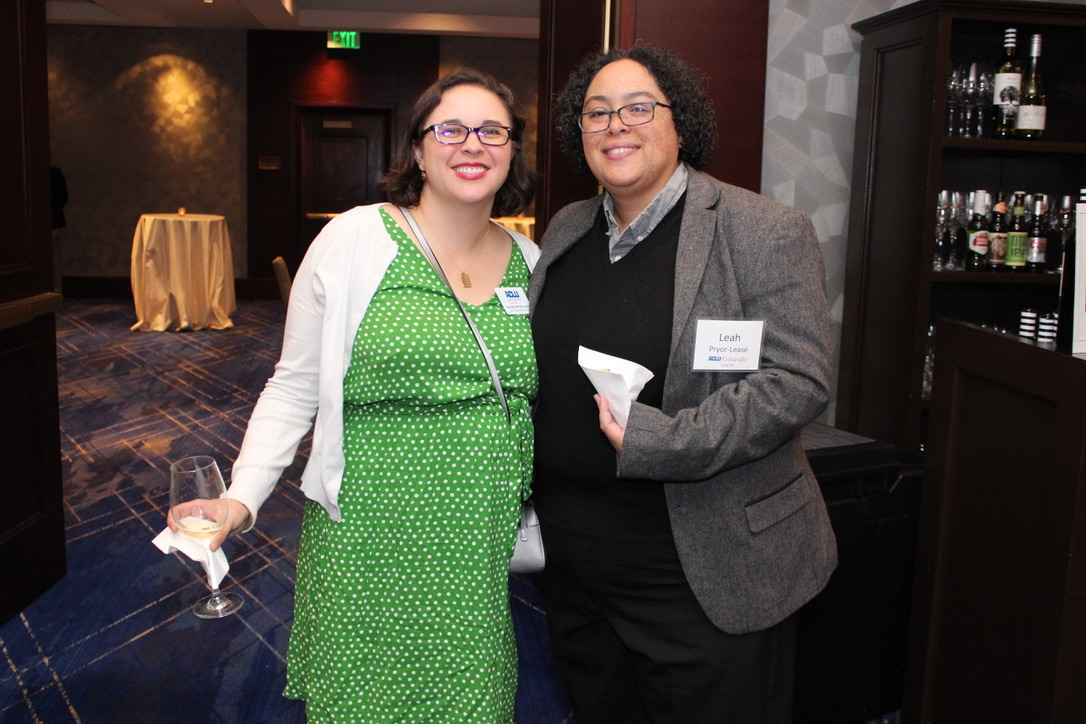
Rachel returned home to Colorado in 2011 to settle down and start a family with her wife. In 2012, she came back to the ACLU as the Development Associate for the Colorado affiliate. Over the course of her ten years of employment at the Colorado office, she grew her role and responsibilities, eventually becoming the Director of Philanthropy in 2019, where she was responsible for leading our affiliate’s fundraising efforts. Rachel recently left the ACLU to return to her passion for the culinary arts by becoming the Director of Development for the Colorado Restaurant Foundation.
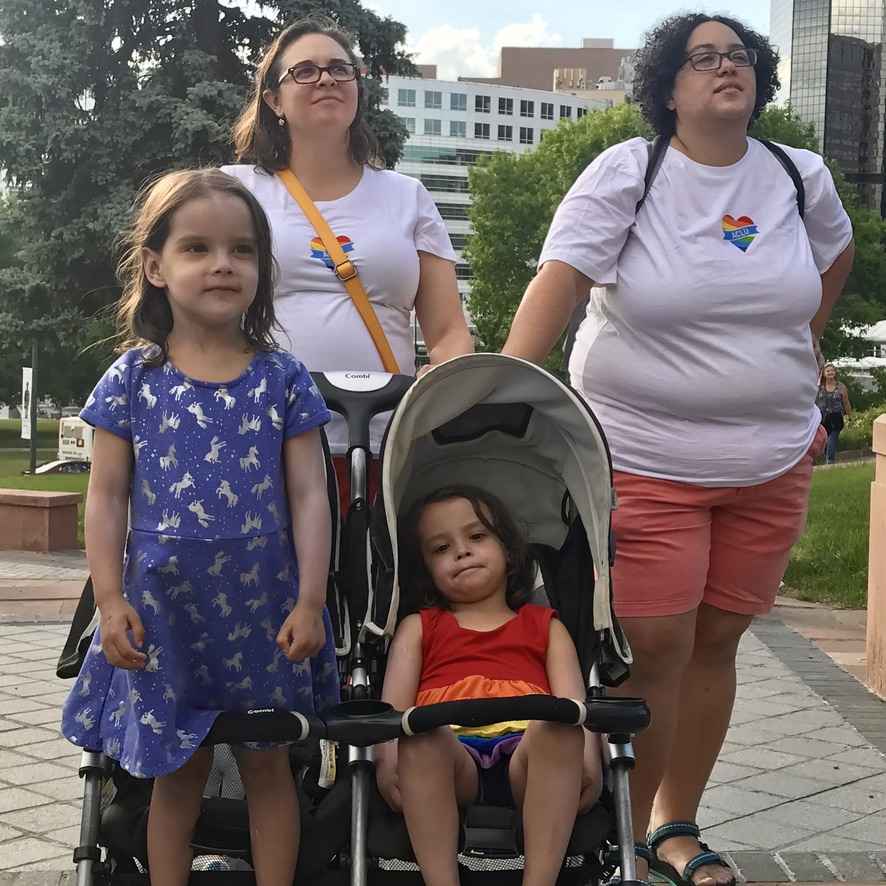
Even though she won’t be working at the ACLU on a day to day basis, she is committed to supporting our work with her monthly Guardians of Liberty membership donation. Rachel knows that the ACLU will keep fighting to make Colorado the safe haven for her children that she wishes she had growing up, when Colorado was the infamous “hate state.”
We are grateful to Rachel for her decade of exemplary service to the organization. Her grace and kindness are missed, but we know the connection will continue.
Meet Our New Staff
Taylor Pendergrass (He/Him/His)
Director of Advocacy and Strategic Alliances
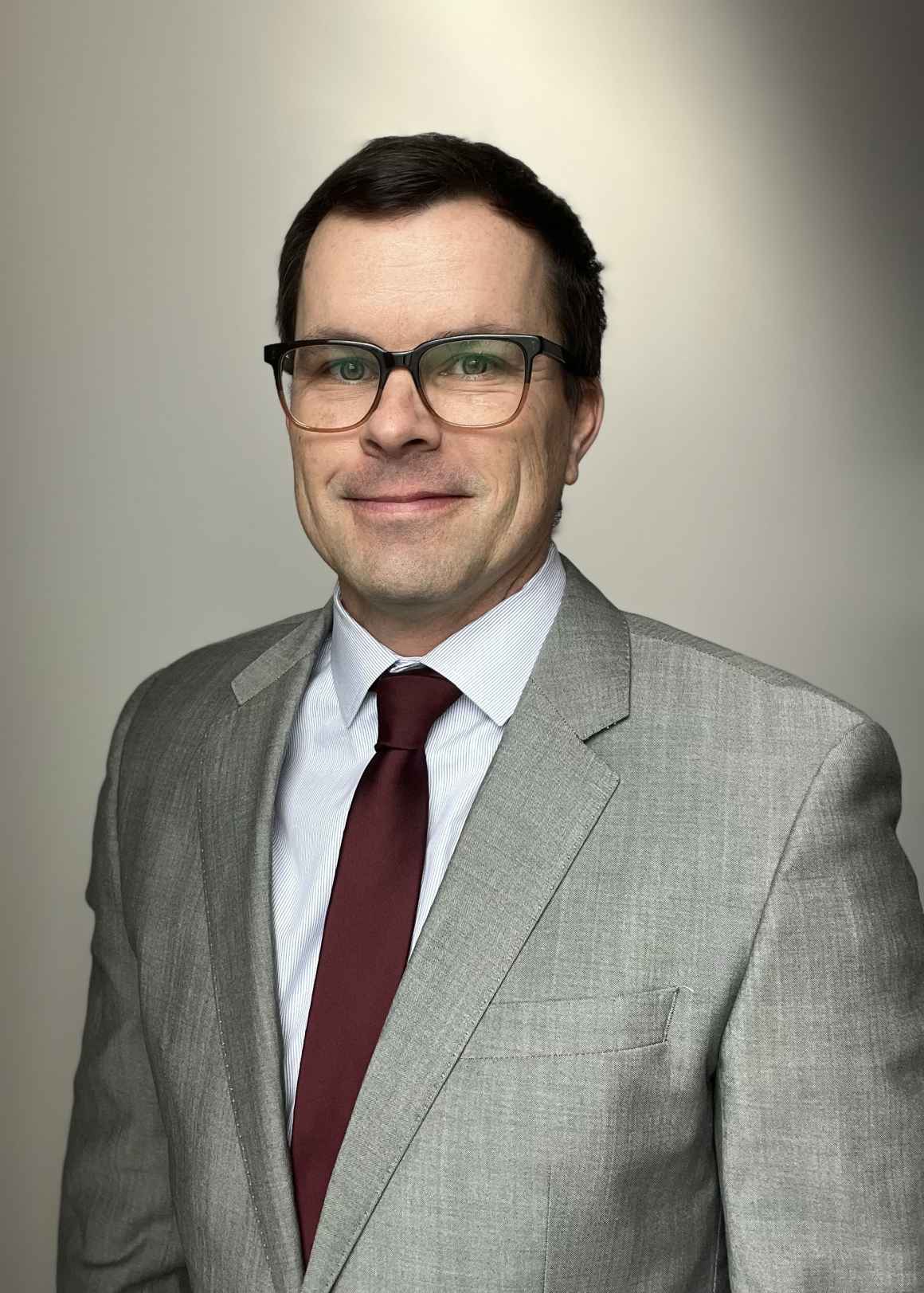
Taylor has been fighting for transformative social change, racial justice, and equality for over 15 years, and leading his teams to policy success at the local, state, and federal level. A nationally recognized thought leader and speaker on embracing a new vision for community safety and dismantling mass incarceration, Taylor spent half a decade working in cities and states across the country with the ACLU’s national Campaign for Smart Justice and launched innovative nationwide initiatives seeking to upend the historical dynamic of local prosecutor elections and transforming policing.
Taylor began his career as a staff attorney at the ACLU of Colorado and later joined the New York Civil Liberties Union, where he litigated landmark cases challenging solitary confinement, housing discrimination, immigrants’ rights, and police abuse. His writing has been featured in Slate, Vox, and other national publications. His book Six by Ten, a collection of first-person oral histories describing the horrors of solitary confinement, was published by Haymarket Press in 2018. He is a graduate of the University of Colorado School of Law.
Crosby Canotas (they/them/theirs)
Development Coordinator
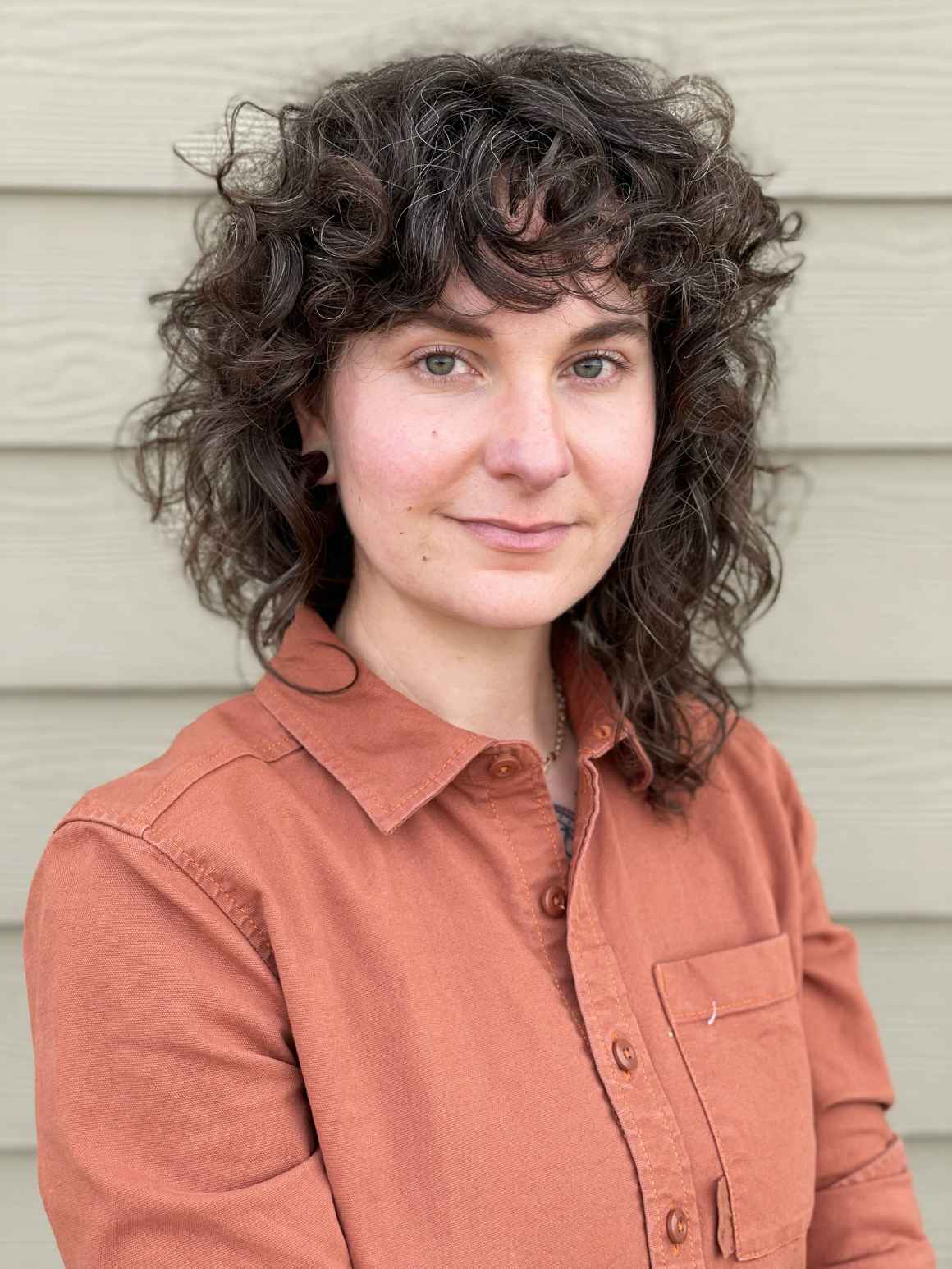
Crosby previously worked in development at Habitat for Humanity of Metro Denver and the San Francisco Museum of Modern Art. As the Development Coordinator, Crosby works closely with the Director of Philanthropy and Donor Relations Officer to secure funding so that the Colorado affiliate can continue to fight for the rights and liberties of all Coloradans. They are especially passionate about LGBTQ+ and reproductive rights and have been a Planned Parenthood patient escort since 2016. They hold a degree in Art History from UC Berkeley.
Originally from New Mexico, Crosby spent a large portion of their childhood in Wales. They lived in San Francisco, New York, and Vietnam before settling in Colorado. In their personal time they enjoy training for and running marathons. They live north of Denver with their partner, a corgi-mix pup, and a black cat.
Erica Tinsley (she/her/hers)
Communications Officer
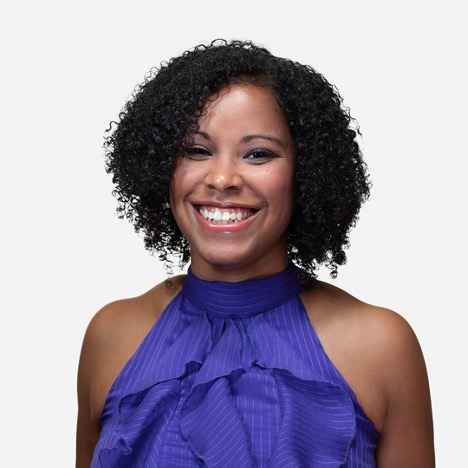
Erica serves as the secretary of the Denver Press Club where she has worked to organize mixers and panel discussions with leaders in Denver’s underrepresented, diverse communities, local journalists, and community members.
She also spearheaded efforts to re-establish the Colorado Association of Black Journalists (CABJ) and is currently serving as the organization’s interim secretary.
Prior to moving into the communications field, Erica worked in the television news industry for 11 years. She spent most of her career as a newscast producer before moving into management roles where she handled newsroom operations. Most recently she helped launch and manage a diversity, equity, and inclusion initiative called Voices of Change at 9NEWS, and was captain of their DE&I efforts before leaving television news to join the ACLU of Colorado.
Erica earned a Bachelor of Arts degree at New Mexico State University in Journalism and Mass communications. She is currently pursuing her master’s degree in Digital Audience Strategy through Arizona State University online, while working full-time.
Related content
HB25-1276 Court Actions Related to Failure to Appear in Court
April 1, 2025
Judge Issues Preliminary Injunction in ACLU Lawsuit Against...
March 19, 2025Crookshanks, et al. v. Elizabeth School District
March 19, 2025Beagle v. People (Amicus)
March 17, 2025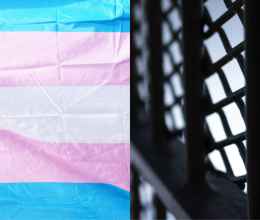
ACLU Tells Sheriffs and County Attorneys: Don’t Discriminate...
February 27, 2025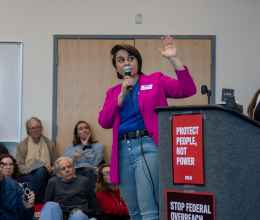
State and Local Governments Are Saying No to Trump's Radical Agenda
February 24, 2025